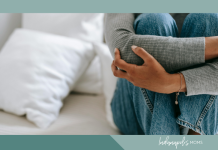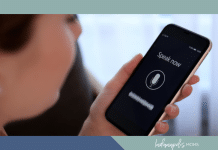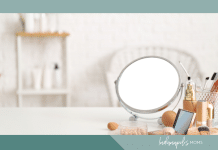Yes, you heard me right, you are… biased (C’mon, what b-word did you think I was referring to?!) I am biased. You are biased. We are all biased.
Historically, and evolutionarily speaking, our implicit or unconscious biases developed from the basic human need to survive. Back in the day when our prehistoric brothers and sisters roamed the Earth, they needed a way to process the plethora of information thrown their way in a quick, effective manner. These biases, or prejudices, helped their primitive brains process information more efficiently by creating shortcuts to find connections between bits of information. While these shortcuts helped promote survival by recognizing which poisonous plants to avoid or which neighboring, ravenous group posed threats, implicit biases in our modern culture create the potential for extremely negative, dangerous outcomes.
Ok, let’s back up. What exactly do I mean by an implicit bias? Implicit bias is a stereotype applied to a certain group or type of person. More specifically, it’s something we don’t even think about. Implicit biases are generalizations so ingrained in our minds that we often can’t even recall why we think this way or where the thought originated. It is because of this “hmm I don’t even know why I think that way, but I do” mentality that implicit biases are so very dangerous.
Still not quite getting it? Here are a few real-life examples…
- Implicit Bias Example #1: Asians are good at math.
- Friend: “What did you major in at IU?
- Me: “Well, I started as a math/statistics major…”
- Friend: “Ha! Figures!”
- What my friend doesn’t understand, is that I switched my major because I realized, in fact, I was NOT good at math and was setting myself up for failure and unhappiness if I continued down that path… and instead, now I work for a great organization, see the example below!
- Implicit Bias Example #2: Women can’t drive or do hard labor.
- Currently, I work part-time for an environmental nonprofit where I build outdoor classrooms at elementary schools. A typical day often includes driving around a 550 dump truck (read: big a** truck) hauling soil, mulch, tree limbs, etc. to and from project sites. Every single time I go to a particular supplier, the male employees cannot help but guffaw when they see me pop out of the cab or climb on top of the truck bed to rake the mulch pile even and secure a tarp.
- Worker: “Oh my gosh, sweetheart!!! Do you need help?!”
- Me: “Nope. You see me all the time. I obviously drove it here all by myself and am fully capable of handling my own job just fine.”
- Worker: “Well ok, you little firecracker. But seriously honey, you just honk your horn if you change your mind and need some help. That’s a big load you have in there!”
- ((Insert ALL the eye-rolling emojis))
So those are just a few, minuscule examples of the biases I face on a daily basis. If I really want Indianapolis to shift to my idea of a truly diverse, inclusive and equitable community, we must consciously work to unpack our unconscious biases. What do we do first? We admit we have them! It’s ok. Like I said before, we ALL have biases. I’m not here to single anybody out, I’m here to help all of us collectively. What do I suggest for your next step?
I believe the only way to truly tackle our biases is to face them head-on. If you think about your family, your social circles and your professional circles, there is a high probability that majority of those people look like you (racially/ethnically) and/or resemble you in a socio-economic lens. This isn’t your fault per se, it just means you need to put in the effort and work to change this. The best way to genuinely (and I do mean genuinely, we’ll save the dangers of tokenism for a later discussion…) address these unconscious stereotypes, is to expand our circles to include voices that aren’t like ours. We need to be comfortable with the uncomfortable and go out of our way to put ourselves in “new” situations that aren’t our typical norm.
Just recently, I took a look at my personal social media and did an inventory on the people/brand/organizations I follow (thanks to the podcast called “Your Neighbor’s Hood” for the idea!). I realized the majority of the people I follow on Instagram are white millennials. Social media is something we look at every single day. By diversifying the voices we intake on platforms like Twitter and Instagram, we’re one step closer to normalizing (which is one step closer to celebrating) these diverse images and voices.
Similarly, I’ve been on a mission to diversify the books and toys my daughter has at our house. She recently had her 2nd birthday, and I made sure to select books that empower women and/or feature people of color as main characters. I go out of my way to find the “Little People” set that’s not just little blonde, white girls. We have baby dolls that are white, black, brown and blue (thanks to that permanent marker… whoops!).
Do I think that adding diverse voices to your social media feed or toy shelf are the key to ending systemic racism and gender inequality? Absolutely not. Do you deserve a pat on the back for “liking” the image of a woman of color on Instagram or reading “Whistle for Willie” at bedtime? Absolutely not. Will it help remind you and your little ones on a daily basis that diversity is something that exists and needs to be celebrated, appreciated and valued? Absolutely!
I encourage all of my fellow Indianapolis Moms to join me in my journey toward a diverse, inclusive and equitable community. Our little ones (especially those of color!!) deserve it.








